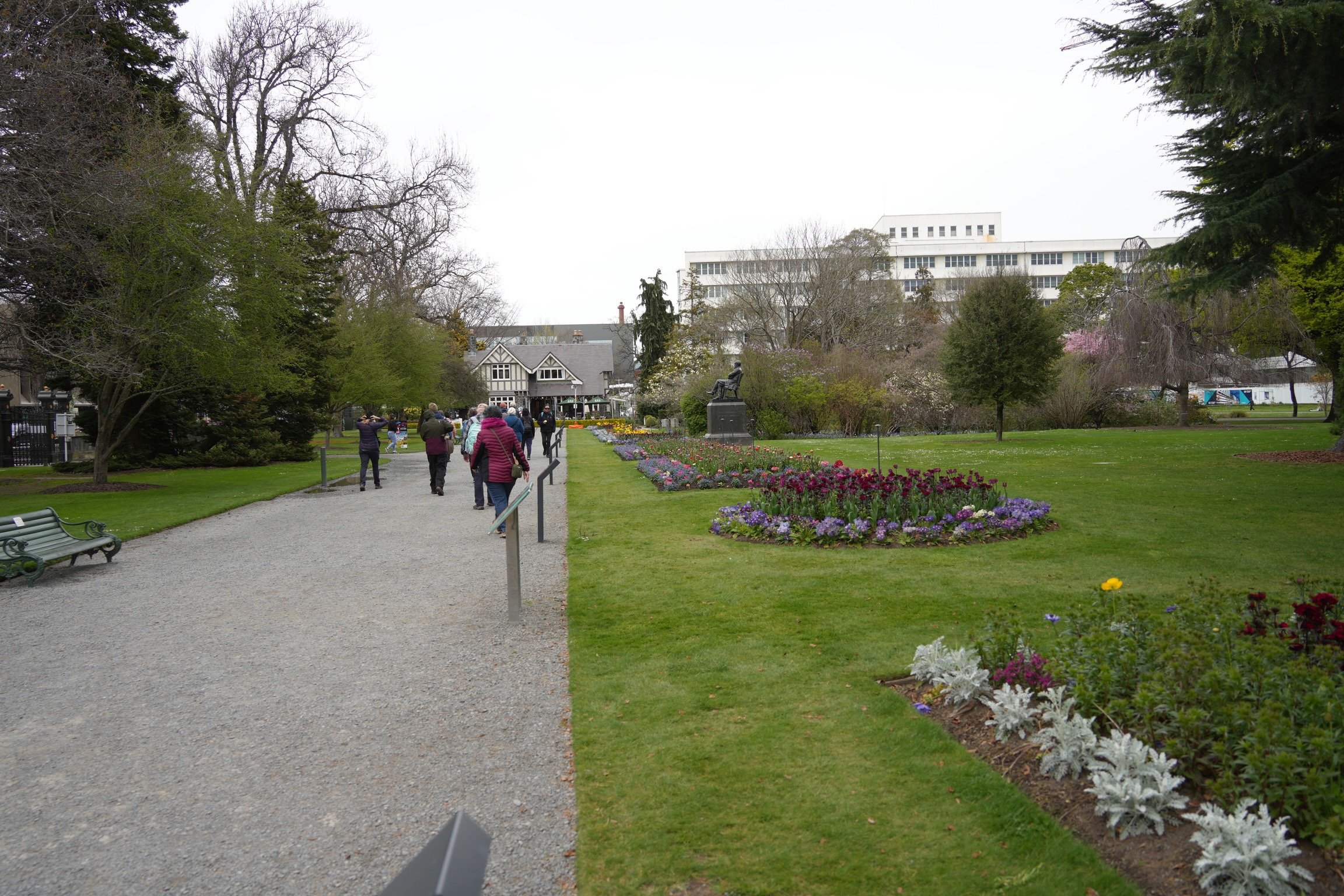Christchurch & Rubicon Valley
We arrived in New Zealand in the evening a couple of days ago, in Christchurch. The next day we began with a walk over to KO TĀNE on the Avon river for a brief lesson in te reo, the Maori language, and in how to use hīrau oars to power a waka boat. While in our boats we learned a little bit about Maori history in New Zealand. Gareth, our New Zealand guide took photos.
I don't remember the colors being quite this vivid.
After that we walked around the central part of Christchurch, seeing what was damaged in the 2011 earthquake. While there are some new buildings, the city isn’t nearly what it was in 2011. And it has taken on so much debt that it cannot afford to refurbish the namesake Cathedral in the center of down. It’s surrounded by so much steel buttressing so that it can hardly be seen. Nonetheless, the city is beautiful with an amazing botanical garden made to look like an English city, Canterbury, specifically.
Walking along the botanical garden.
A small section of town that survived the earthquake and was refashioned into an entertainment district. Very lively when we walked through
Our tour ended at Rivercity Markets, a large food court with a wide variety of options. We went for Malaysian and weren’t disappointed.
Tables on the second and third floors for eating; restaurants and bars on the first floor.
On our way back to the hotel we did some light shopping at the pedestrian mall. That evening we had a home hosted dinner with Alistair and Margaret. We had a nice dinner of lamb and roasted vegetables coupled with homemade pavlova. It was a great way to learn more about life in Christchurch, getting a sense of the place beyond the central city. On the drive home in the dark we learned that light pollution is low and it is possible to see many stars on most nights and sometimes the Aurora Australis.
Delicious deserts at our home-hosted meal, pavlova with the golden kiwi on top and Hokey Pokey icecream. Yum!
Today we checked out of our hotel and boarded a chartered bus bound for Hokitika. Along the way we visited a working farm in the Rubicon Valley where they shear sheep, raise Alpaca, and give tours. We saw a little demonstration of how the dogs worked together to round the sheep into a pen, how the sheep are sorted, and then saw Chris — the co-owner of the farm with his wife Dell — shear a sheep. Apparently they don’t really shear for profit as they make less from the sale of the wool than it costs to give the sheep a trim. But if they don’t shear, the sheep die because they’ve been bred not to shed. The mass of hair eventually will kill them, either directly or (more likely) indirectly from parasites.
Flynn (Border Collie) and Dee (Huntaway), work together to round up the sheep.
Getting to hug an alpaca is nice.
After a delicious lunch at the farm, we drove over the mountains in the rain and arrived in Hokitika just as the sun was coming through the clouds. Soon we will be heading out into the dark to see a glow worm cave.
View of the mountains through foggy bus window.






